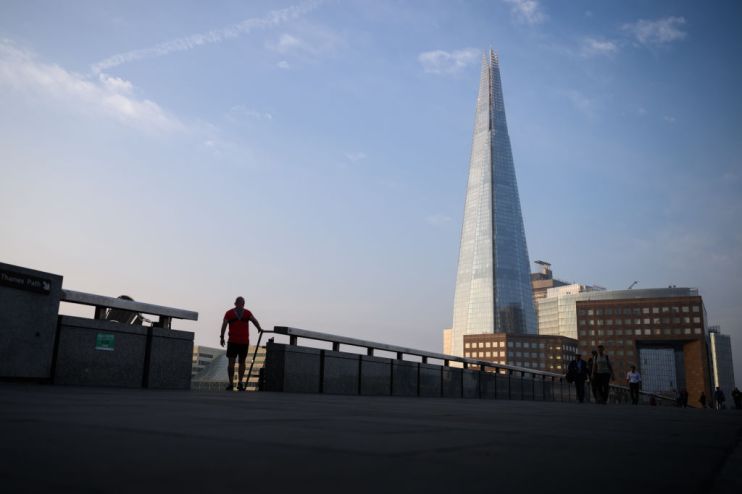UK economic bounce back a false dawn as recession still looms

The UK economy is bouncing back, latest figures show, but economists still expect the country to tip into a record long recession.
Gross domestic product (GDP) climbed 0.5 per cent in October, swinging back from a contraction over the summer, the Office for National Statistics (ONS) said today.
The figures beat the City’s expectations. London’s FTSE 100 dropped 0.32 per cent and the pound was broadly flat against the US dollar on the news.
Analysts labelled the jump in output a false dawn as it was mainly driven by the additional bank holiday in September to mark the queen’s funeral.
October’s rise was “supported by the return of the number of working days to their seasonal norm,” Samuel Tombs, chief UK economist at Pantheon Macroeconomics, said.
Retail firms notched a 1.9 per cent bump in output, pushing overall production higher, likely because most were closed during the bank holiday.
On a three month basis, the economy contracted 0.3 per cent, indicating the country’s underlying economic strength is shaky.
Experts reckon Britain is slipping into the longest recession in a century, driven by roaring inflation, running at a 41-year high of 11.1 per cent, sparking a spending slow down.
Chancellor Jeremy Hunt recognised pain ahead.
“While today’s figures show some growth, I want to be honest that there is a tough road ahead,” he said.
A string of data out this week will unearth how the economy is performing before the Christmas break in the City.
Fresh inflation data out on Wednesday is likely to show this year’s surge has passed its peak. Jobs numbers out tomorrow are expected to show pay is lagging far behind price rises.
Although price pressures are easing, the Bank of England will hike interest rates on Thursday for the ninth time in a row, but analysts said there is a chance they could repeat November’s 75 basis point rise after today’s GDP numbers.
“The surprisingly strong rise could tilt the Bank of England towards another bumper 75 basis point interest rate hike,” Ruth Gregory, senior UK economist at Capital Economics, said.
Monetary and government policy now seem likely to combine to squeeze households over the coming year in a bid to stamp out inflation.
“The government looks set to pull back energy price support substantially next year, while higher interest rates will squeeze disposable incomes and spur households and businesses to pay off debt,” Tombs added.
Sky high energy prices hit trade position
Sky high energy prices triggered by Russia’s invasion of Ukraine jolting international gas markets continues to weigh on the UK’s trade position, official figures out today show.
Britain’s trade deficit widened to £23.9bn in the three months to October, according to the Office for National Statistics (ONS).
However, removing inflation, the deficit actually narrowed £5.1bn to £9.8bn over the same period.
A country’s trade balance is in deficit if it imports more goods and services than it exports. It can weigh on its currency due to firms having to borrow money to cover the cost of buying products from abroad.
“Elevated gas prices still are contributing to the larger than usual underlying deficit,” Gabriella Dickens, senior UK economist at Pantheon Macroeconomics, said.
The pound strengthened around 0.2 per cent against the US dollar after the trade figures were released.